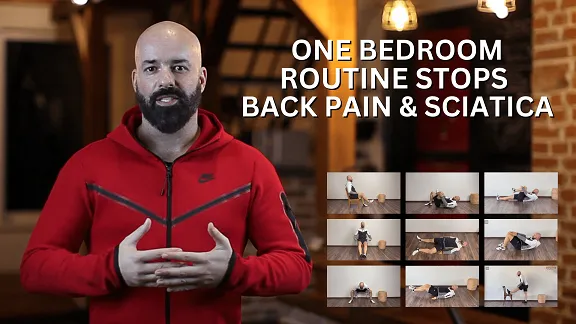Imagine a life where you can excel in your career while still having time for yourself, your family, and your personal interests. Achieving a healthy work-life balance can seem like an elusive goal, but it is absolutely attainable with the right mindset and strategies. In this article, we will explore practical tips and techniques to help you build and maintain a healthy work-life balance, allowing you to thrive both professionally and personally. Whether you’re struggling to find time for relaxation or constantly feeling overwhelmed by work commitments, this article will provide you with valuable insights and actionable steps to achieve the harmony you desire.
Understanding Work-Life Balance
Defining work-life balance
Work-life balance refers to the equilibrium between your work obligations and your personal life. It means finding a way to effectively manage your time and energy so that you are able to meet both your professional and personal commitments without feeling overwhelmed. It involves setting boundaries and priorities to ensure that you have enough time and energy for work, family, hobbies, and self-care.
Importance of work-life balance
Maintaining a healthy work-life balance is crucial for your overall well-being and happiness. It helps prevent burnout, reduces stress, and improves your mental and physical health. When you have a proper balance between work and personal life, you feel more fulfilled, which contributes to higher productivity and job satisfaction. It also strengthens your relationships, as you have more time and energy to nurture personal connections. Ultimately, achieving work-life balance allows you to lead a more fulfilling and purposeful life.
Identifying Work-Life Imbalance
Signs of work-life imbalance
An important step in improving work-life balance is recognizing the signs of imbalance. Some common signs include constantly working overtime, neglecting personal relationships, feeling overwhelmed or stressed, having poor sleep patterns, and experiencing deteriorating health. If you find yourself constantly sacrificing personal time and neglecting important aspects of your life, it may be a sign that your work-life balance needs to be addressed.
Consequences of work-life imbalance
Ignoring work-life imbalance can have negative consequences on various aspects of your life. It can lead to chronic stress, which increases the risk of burnout, anxiety, and depression. Physical health issues such as heart disease, obesity, and weakened immune system may also arise. Additionally, work-life imbalance can strain personal relationships, resulting in feelings of isolation and loneliness. It may also hinder career growth and satisfaction as continuous overworking can lead to decreased productivity and creativity.
Setting Priorities
Recognizing core values
To establish a healthy work-life balance, you must first recognize your core values. These are the principles that guide your life and define what is most important to you. By understanding your values, you can ensure that your choices and actions align with what truly matters to you. Identifying your core values will help you determine how to allocate your time and energy effectively between work and personal life.
Establishing personal and professional goals
Setting clear goals is essential for achieving work-life balance. By establishing personal and professional goals, you have a direction to work towards and can prioritize your time accordingly. These goals should be realistic and aligned with your core values. They can include personal milestones, career aspirations, and even leisure activities. Having clear goals helps you focus, stay motivated, and make conscious choices that support your work-life balance.
Learning to say no
One of the most important skills in achieving work-life balance is learning to say no. It is natural to want to please others and take on additional responsibilities, but saying yes to everything can quickly lead to overwhelm and imbalance. By setting boundaries and politely declining tasks or commitments that do not align with your priorities, you create space for what truly matters. Learning to prioritize your own needs and saying no when necessary empowers you to protect your time and energy.
Prioritizing tasks and responsibilities
To effectively manage your time and achieve work-life balance, it is crucial to prioritize tasks and responsibilities. Start by identifying the most important and urgent tasks and tackle them first. Use tools like to-do lists or project management apps to stay organized and keep track of your priorities. Remember to delegate tasks whenever possible and focus on activities that align with your goals and values. By prioritizing your tasks, you can avoid feeling overwhelmed and ensure that you are investing your time and energy in the most meaningful ways.
Managing Time Effectively
Creating a schedule
Creating a schedule is essential for managing your time effectively and achieving work-life balance. Start by assessing your current commitments and responsibilities, both at work and in your personal life. Block out specific time slots for different activities, including work tasks, personal appointments, exercise, and relaxation. Be realistic about how much time each task requires and stick to the schedule as much as possible. Having a clear and structured schedule provides a sense of control and helps you allocate your time efficiently.
Avoiding time-wasting activities
Identifying and eliminating time-wasting activities is key to managing your time effectively. This includes minimizing distractions such as excessive social media use, excessive meetings, or unnecessary tasks that do not contribute to your goals. Set boundaries and avoid multitasking, as it can decrease productivity and focus. Instead, focus on one task at a time and allocate specific time periods for checking emails or engaging in non-work-related activities. By eliminating time-wasters, you can free up more time for activities that bring value and fulfillment to your life.
Delegating tasks
Delegating tasks is an important skill in managing your time effectively and achieving work-life balance. Recognize that you don’t have to do everything yourself and that it is okay to ask for help. Identify tasks that can be assigned to others, whether it’s at work or in your personal life. Delegation not only lightens your workload but also allows you to focus on high-priority tasks and activities that align with your skills and interests. Remember to communicate clearly and provide necessary guidance to ensure successful delegation.
Managing distractions
Managing distractions is crucial for maintaining focus and productivity. Limit distractions by creating a dedicated workspace and turning off notifications on your phone or computer during focused work periods. If you work in a shared environment, consider using noise-cancelling headphones or finding a quiet area where you can concentrate. Implementing strategies to minimize distractions enables you to work efficiently and complete your tasks within a reasonable timeframe, reducing stress and creating more time for relaxation and personal activities.
Utilizing productivity techniques
Utilizing productivity techniques can significantly enhance your time management skills and contribute to work-life balance. Techniques such as the Pomodoro Technique, time blocking, and the Eisenhower Matrix can help you prioritize tasks, manage your energy, and maintain focus. Experiment with different techniques to find one that suits your working style and enables you to accomplish tasks more effectively. By using productivity techniques, you can optimize your time management and create a better balance between work and personal life.
Establishing Boundaries
Defining work boundaries
Establishing clear boundaries between work and personal life is essential for achieving work-life balance. Determine specific hours when you will focus solely on work tasks and communicate them with your colleagues and supervisors. Avoid answering work-related emails or calls outside of these hours, unless necessary. This helps maintain a healthy separation between your work and personal life and prevents constant intrusion on your personal time. Set realistic expectations with your coworkers regarding response times and ensure that you have defined periods of uninterrupted personal time.
Setting personal boundaries
Setting personal boundaries is equally important for work-life balance. Allow yourself to disconnect from work-related responsibilities during personal time. Avoid bringing work home or letting work-related stress infiltrate your personal life. Designate specific activities or rituals that signal the start and end of your workday, such as going for a walk, reading a book, or spending quality time with loved ones. By setting personal boundaries, you create a space for relaxation, rejuvenation, and enjoyment outside of work.
Separating work and personal life
Separating work and personal life involves creating physical and mental boundaries between the two. Designate a specific workspace in your home or office where you can focus on work-related tasks. Avoid using personal devices or accounts for work-related activities whenever possible, as this blurs the lines between work and personal life. Similarly, when you are engaged in personal activities, strive to be fully present and avoid checking work-related emails or bringing work-related stress into those moments. By separating work and personal life, you can better balance your commitments and dedicate time and attention to both aspects of your life.
Promoting Work-Life Integration
Flexible work arrangements
Flexible work arrangements can promote work-life integration by allowing individuals to have more control over their schedules. This can include options such as flextime, compressed workweeks, or telecommuting. Flexible work arrangements enable individuals to better balance work and personal responsibilities, reducing stress and enhancing overall satisfaction. Discuss with your employer the possibility of implementing flexible work arrangements that suit both your needs and the organization’s requirements.
Blurring the boundaries
Blurring the boundaries between work and personal life can also contribute to work-life integration. In some instances, work-related tasks can be incorporated into personal activities or vice versa. For example, if you enjoy exercising, you can participate in work-related fitness activities or incorporate physical activity into your work routine. However, it is important to ensure that blurring boundaries does not lead to constant work intrusion or compromise personal time.
Finding synergy between work and personal life
Finding synergy between work and personal life involves aligning your personal interests and passions with your professional pursuits. Look for opportunities to incorporate personal hobbies or skills into your work or to engage in work-related activities that bring personal fulfillment. For example, if you love photography, you can explore opportunities to take photos for work projects or events. By finding synergy between work and personal life, you can experience greater satisfaction and enjoyment in both areas.
Promoting Physical Well-being
Regular exercise
Regular exercise is crucial for maintaining physical well-being and work-life balance. Engaging in physical activity not only enhances your overall health but also boosts your energy levels, reduces stress, and improves your mood. Find physical activities that you enjoy and incorporate them into your routine. Whether it’s going for a walk, practicing yoga, or joining a sports team, regular exercise will help you stay physically fit and energized to meet the demands of both work and personal life.
Proper nutrition
Proper nutrition is essential for sustaining energy levels throughout the day, improving focus, and supporting overall well-being. Make sure to incorporate a balanced diet that includes a variety of fruits, vegetables, whole grains, lean proteins, and healthy fats. Plan and prepare meals in advance to avoid relying on processed or fast food options. By nourishing your body with wholesome and nutritious foods, you enhance your ability to be productive, maintain a positive mood, and manage the demands of work and personal life.
Adequate sleep
Adequate sleep is crucial for physical and mental well-being, yet it is often overlooked when striving for work-life balance. Aim for a consistent sleep schedule and ensure that you are getting the recommended seven to nine hours of sleep each night. Create a relaxing bedtime routine that includes activities such as reading, listening to calming music, or practicing mindfulness. By prioritizing quality sleep, you enhance your overall health, cognitive functioning, and ability to manage daily challenges effectively.
Stress management techniques
Implementing stress management techniques is essential for physical well-being and maintaining work-life balance. Find techniques that work for you, such as deep breathing exercises, meditation, or engaging in hobbies that help you relax and recharge. Schedule regular breaks throughout the day to step away from work-related tasks and engage in activities that reduce stress. Discover what helps you unwind and incorporate these practices into your routine to manage stress and promote physical well-being.
Nurturing Mental and Emotional Health
Managing stress
Managing stress is crucial for nurturing mental and emotional health. Identify sources of stress in your life and develop strategies to address or mitigate them. This may involve practicing time management techniques, setting boundaries, or seeking support from colleagues or supervisors when feeling overwhelmed. Additionally, incorporating stress-relieving activities into your routine, such as exercise, mindfulness, or engaging in hobbies, can help reduce stress levels and promote overall well-being.
Practicing mindfulness
Practicing mindfulness is an effective way to nurture mental and emotional health. Engaging in mindfulness exercises, such as meditation or deep breathing, can help you become more present, reduce anxiety, and improve focus. Incorporate mindfulness into your daily routine by setting aside dedicated time for mindful activities, such as taking a walk in nature, practicing yoga, or simply focusing on your breath. By cultivating mindfulness, you enhance self-awareness, reduce stress, and improve your ability to navigate the challenges of work and personal life.
Seeking support
It is important to seek support when facing challenges in work and personal life. Reach out to trusted colleagues, friends, or family members for advice, guidance, or simply to vent. Establishing a support network can provide reassurance, perspective, and practical solutions to the issues you may be facing. Additionally, consider seeking professional support through counseling or coaching if you feel overwhelmed or unable to cope with the demands of work and personal life.
Engaging in hobbies and leisure activities
Engaging in hobbies and leisure activities is essential for nurturing mental and emotional health. Dedicate time to activities that bring you joy and fulfillment, whether it’s reading, painting, playing a musical instrument, or participating in sports. Engaging in hobbies outside of work allows you to recharge, experience personal growth, and find a sense of purpose and satisfaction beyond your professional endeavors. Make leisure activities a priority and integrate them into your routine to enhance your overall well-being.
Building Strong Relationships
Investing time in personal relationships
Investing time in personal relationships is crucial for work-life balance and overall happiness. Make a conscious effort to spend quality time with your loved ones, whether it’s through shared meals, outings, or engaging in activities together. Prioritize building and maintaining relationships by setting aside specific time each week for meaningful interactions. Regularly communicate with family and friends to foster strong connections and ensure that your personal relationships remain a priority.
Socializing and networking
Socializing and networking are important aspects of work-life balance. Engage in activities outside of work that allow you to meet new people, expand your social circle, and build professional connections. Attend industry events, join clubs or organizations related to your interests, or participate in networking activities to create a well-rounded social and professional network. By nurturing both personal and professional relationships, you create a support system and opportunities for growth and fulfillment.
Maintaining open communication
Maintaining open communication is essential for building and strengthening relationships. Practice active listening, empathy, and open-mindedness when engaging with others. Be transparent about your work commitments and personal obligations, and seek understanding and flexibility from those around you. Regularly check in with your loved ones and colleagues to ensure that everyone’s needs and expectations are being met. By fostering open communication, you can establish stronger connections, resolve conflicts effectively, and maintain a healthy work-life balance.
Taking Time for Self-Care
Prioritizing self-care
Prioritizing self-care is a critical component of achieving work-life balance. Acknowledge that taking care of yourself is not selfish, but rather essential for your overall well-being and ability to perform at your best. Allocate time each day for self-care activities that rejuvenate and replenish your energy. This can include anything from taking a warm bath, practicing meditation, reading a book, or engaging in activities that bring you joy. By making self-care a priority, you cultivate resilience, reduce stress, and maintain a healthy work-life balance.
Engaging in activities for relaxation
Engaging in activities for relaxation is essential for recharging and maintaining work-life balance. Dedicate time to activities that help you relax and unwind, such as taking walks in nature, practicing yoga, or listening to calming music. Find activities that bring you a sense of calm and incorporate them into your routine regularly. By engaging in relaxation activities, you release tension, improve your mental well-being, and enhance your ability to navigate the demands of work and personal life.
Setting boundaries for personal time
Setting boundaries for personal time is vital for work-life balance. Be intentional about carving out dedicated time for yourself where you can disconnect from work-related responsibilities and focus on personal activities. This may involve setting aside specific hours each day or designating full days as personal time, free from work-related distractions. Communicate your boundaries with colleagues, friends, and family to ensure that your personal time is respected. By setting boundaries for personal time, you create space for rest, rejuvenation, and personal growth.
In conclusion, building and maintaining a healthy work-life balance requires conscious effort and a commitment to prioritizing your well-being. By understanding the concept of work-life balance, recognizing signs of imbalance, and setting priorities, you can make significant improvements in your overall quality of life. Managing your time effectively, establishing boundaries, and promoting work-life integration further contribute to maintaining a healthy balance. Prioritizing physical and mental well-being, nurturing relationships, and practicing self-care are essential components of achieving work-life balance and creating a fulfilling and meaningful life. Remember, achieving work-life balance is a continual process that requires ongoing self-reflection, adjustment, and dedication.






